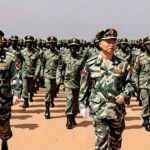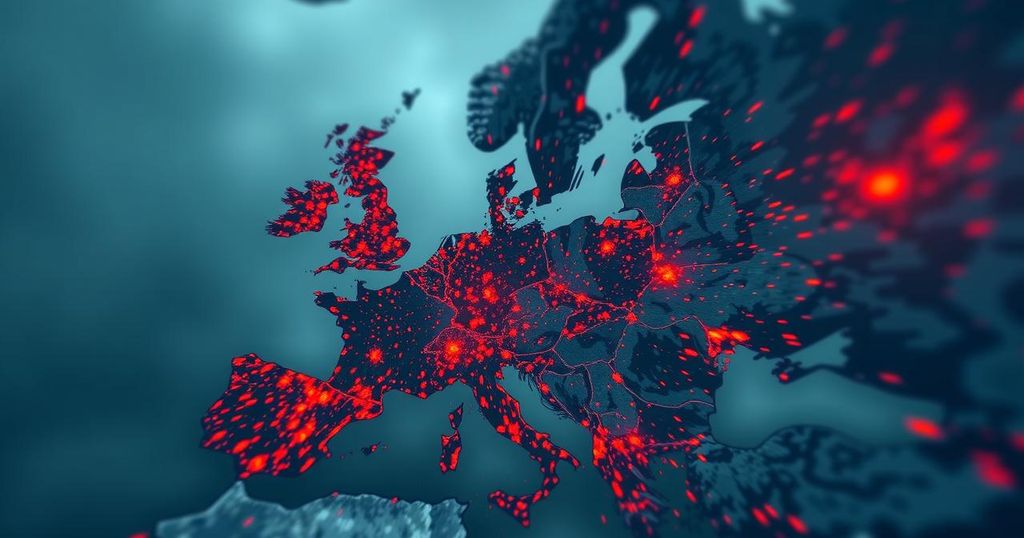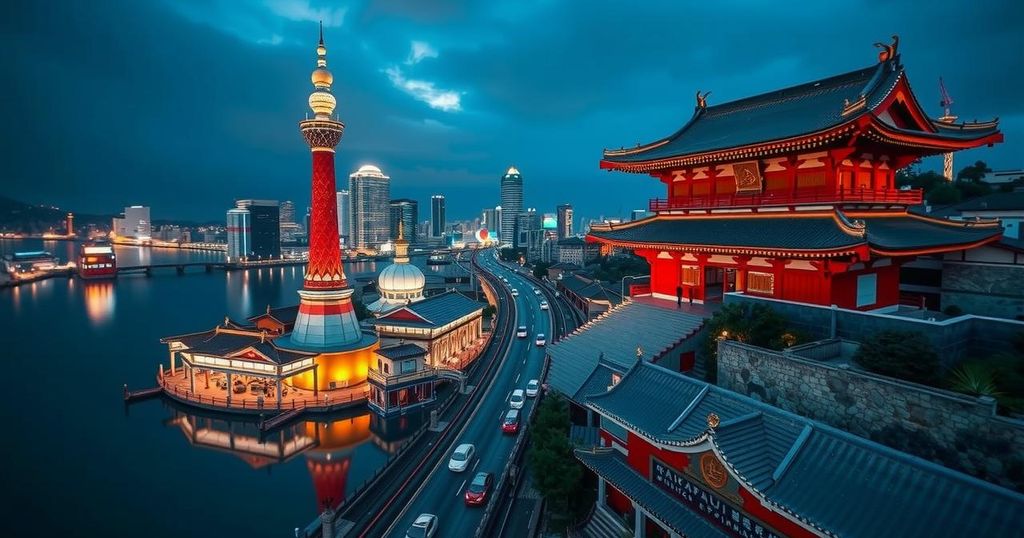India’s Diplomatic Stance: Navigating Complex International Relations
The article examines India’s recent diplomatic posture, highlighting Prime Minister Modi’s meeting with China’s Xi Jinping, indicating India’s reluctance to join a Western anti-China alliance despite ongoing U.S. efforts. Despite allegations linking India to assassination plots, the geopolitical landscape favors India’s non-alignment, allowing it to maintain relationships with major powers without succumbing to external pressures.
India’s Prime Minister Narendra Modi has clearly indicated that his government is not inclined to align with Western nations against China, as demonstrated during a recent meeting with Chinese President Xi Jinping in Kazan, Russia—their first encounter in five years. While this meeting reflects a complex shaping of relations among India, China, and the Western powers, it suggests India’s preference for maintaining its traditional non-aligned stance rather than joining a coalition aimed at countering Beijing. Sanjay Ruparelia, a professor at Toronto Metropolitan University, observed that while the United States may express disappointment over India’s decision, the complexities of U.S.-India relations require a nuanced approach that acknowledges both cooperation and significant disagreements, such as those arising from the Russian invasion of Ukraine. Notably, the recent U.S. sale of Predator drones to India—the very weapons used in American operations against global terrorist groups—was a move framed in realpolitik, emphasizing pragmatic alliances over moral considerations. Although the United States has gathered evidence linking Indian government agents to violent acts against dissidents in Canada, the geopolitical interests in sustaining a strategic partnership with India appear to overshadow these allegations. The assassination claims related to Gurpatwant Singh Pannun have not derailed ongoing U.S.-India collaboration, including high-level discussions aimed at addressing these issues within a broader context of mutual interests. India’s pursuit of a stronger relationship with China may be driven by multiple factors, including an understanding of the complex global landscape in which military and economic alliances shift based on national interests. Despite the border tensions marked by deadly confrontations in the past, the recent dialogue between India and China suggests a desire to resolve outstanding disputes without compromising crucial ties with Russia or recent collaborations with the U.S. Furthermore, Modi’s initial steps toward diplomatic engagement with both the West and its rivals underscore India’s unique position as a non-aligned power capable of engaging with multiple perspectives, which raises questions about how this will influence its strategic decisions moving forward. The significance of Modi’s expedient balancing act may provide India with leverage as it navigates its relationships with global superpowers.
The article discusses recent developments in India’s foreign relations, particularly regarding its relationships with China, the United States, and Russia. It highlights an important meeting between Indian Prime Minister Narendra Modi and Chinese President Xi Jinping, reflecting India’s reluctance to align itself with Western powers against Beijing amidst ongoing discussions about serious allegations concerning assassination plots linked to the Indian government. The article examines the complex and intertwined nature of geopolitical relations in which India seeks to assert its non-aligned status while juggling significant partnerships with both the U.S. and Russia, amidst growing concerns over Chinese expansionism. It illustrates how historical tensions, such as border clashes between India and China, impact contemporary diplomatic moves, and outlines the implications of those moves for regional stability and global alliances.
In conclusion, the article emphasizes that India’s recent diplomatic maneuvers, particularly its meeting with China, signal a determined effort to maintain a non-aligned stance while navigating complex relationships with both Western powers and rivals like Russia and China. Furthermore, despite U.S. concerns regarding the implications of assassination plots linked to Indian operatives, the broader geopolitical dynamics suggest that India is in a strategically advantageous position. The focus on mutual interests rather than moral imperatives characterizes the current state of global diplomacy, and India’s ability to balance these relationships may define its future role on the world stage.
Original Source: www.cbc.ca






Post Comment